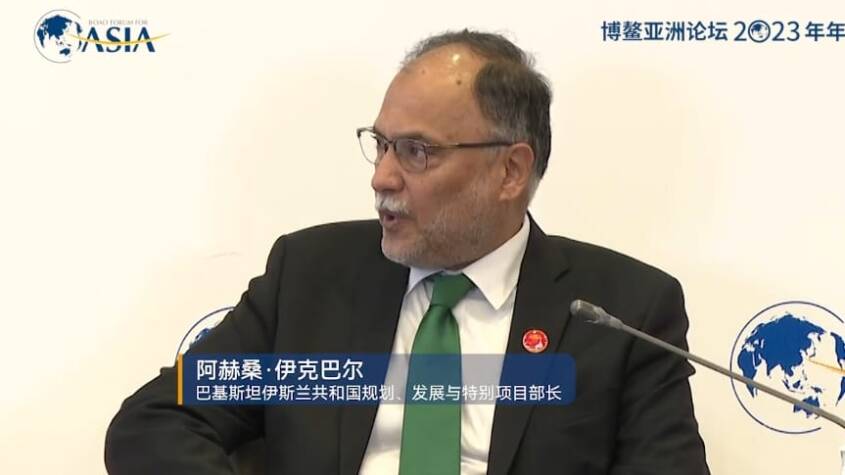The Belt and Road Initiative welcomes everyone to jointly explore opportunities for shared growth, according to the ongoing Boao Forum for Asia Annual Conference 2023.
Since the BRI was first proposed by President Xi Jinping in 2013, the ambition is still the right sentiment going forward, said former World Bank president Jim Yong Kim, who is also partner and vice-chairman of private equity fund Global Infrastructure Partners, thus rejecting the notion of “debt trap diplomacy” as groundless.
“When I heard President Xi make this announcement about the BRI … (I thought) that is the most ambitious development project in human history,” Kim said during a panel discussion entitled “The Belt and Road: Sharing the Opportunities of Development”.
Paolo Borzatta, a board member of The European House — Ambrosetti, said it is important to let people know that the BRI is not just a China-proposed initiative because there are companies around the world that have benefited and could benefit from it.
To make the infrastructure work, Renat Bekturov, governor of Astana International Financial Centre, said more efforts should be placed on trade facilitation agreements to lower trade barriers between economies.
The BRI provides developing countries with the most critical investment to fill in gaps in the economy, said Ahsan Iqbal Chaudhary, Pakistani minister for planning, development and special initiatives.
For example, when Pakistan was only able to provide electricity for 16-18 hours a day, China — under the BRI — allowed its companies to invest in the energy sector when no other foreign investors were coming, said Chaudhary.
Noting peace is in the interest of the countries like Mongolia, Chimed Khurelbaatar, the country’s deputy prime minister and minister of economy and development, said he hopes to see cooperation instead of competition between big powers as everyone can benefit from it when the world is in harmony.
















